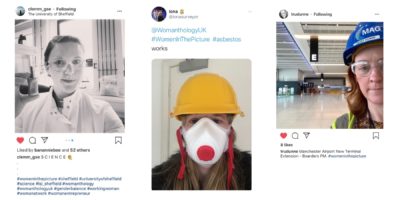Vivienne Porritt is a co-founder and strategic leader of WomenEd, an organisation that supports and connects women leaders in education. Vivienne is also a freelance leadership consultant, and vice president of the Chartered College of Teaching. She has co-edited 10%braver: Inspiring Women to Lead Education – a guide for women in education on how to reach leadership positions, ask for flexible working, the gender pay gap and gender stereotyping.

“Sadly, the most recent data about the school workforce in England suggests that, far from reducing, the gender pay gap is increasing, especially in academies..”
A long career in education
My career has been full of excitement and pride. I worked in four secondary schools in the South East of England for 25 years teaching English and drama and became a headteacher in Surrey in 2000. I loved being a teacher and am proud of my own achievements and those of my students.
Before being a headteacher, I was the arts’ adviser for Buckinghamshire which supported my love of the arts and meant I collaborated with amazing teachers across all sectors. The arts were just being introduced to the National Curriculum and leading a dance workshop for the rugby-loving male PE teachers of a boys’ grammar school was a highlight!
As a leader, I enjoy seeing change and improvements brought about by having a clear vision and strategy for development and the teamwork needed to achieve our collaborative goals.
I was a headteacher when discussions about system approaches were just beginning and I was delighted to help develop a federation of local schools. This gave me a taste for working on a larger scale and I was offered a secondment to the Department for Education as a member of the national team of Continuing Professional Development (CPD) advisors with my region being London. London Challenge had just started and was a phenomenal time to be in education.
After two years I needed to decide my next step; to return to school or continue with a wider brief. The Institute of Education (IOE) in London offered me the post of leading CPD in a new department, The London Centre for Leadership in Learning.
This move was a culture shock as the pace is different in universities and it was hard at times to ensure change was achieved. I was able to continue working with school leaders across London which was amazing and developed my skills further by being a chair of governors for one of our secondary partner schools.
As a leadership consultant, I am privileged to still work with so many of those leaders in London. My final role at the IOE was director of school partnerships and I left after 11 exciting years.
After previously deciding twice not to work for myself, I finally took the plunge in 2015. This decision was partly precipitated by a diagnosis of breast cancer in 2014 which made me think about the way I wanted to work in the future.
WomenEd: a global community of women educational leaders
WomenEd is a grassroots community that was born on Twitter to connect and support women leaders to have a voice in the education debate.
My fellow co-founder, Sameena Choudry, has written about the first few years of WomenEd previously. We have continued to grow as a global community supporting women across 19 countries through 30 national and regional networks.
On May 19th, 2020, we held our 5th birthday party on Zoom with 500 joining us and many more on Twitter. We continue to be a not-for-profit organisation composed of volunteers and our 135 network leaders are utterly amazing in all that they give to other women.
Gender balance in educational leadership
A stimulus to developing WomenEd was the publication of the statistics showing the gender balance – or rather the imbalance – in educational leadership in English schools.
The Future Leaders Trust highlighted that “If headships reflected the workforce then 74% of heads would be female and there would be 1,739 more female heads.”. Frustrating details included:
Primary
- 15% of workforce is male yet 28% of headteachers are male
- 85% of workforce is female yet 71% of headteachers are female
Secondary
- 38% of workforce is male yet 64% of headteachers are male
- 62% of workforce is female yet 36% of headteachers are female
(DfE Workforce data, 2014)
I was shocked at this as it seemed there had been little progress in women gaining headteacher posts, especially in secondary schools.
Our developing WomenEd team was further galvanised when Professor Rebecca Allen and Education Datalab published an analysis of the average wage differences between full time male and female teachers and leaders.

Of course, the data would be horrific if part time staff were included as the significant majority of those are women.
This data really shocked me and led to me developing a specialist interest in the gender pay gap amongst our WomenEd team. Sadly, the most recent data about the school workforce in England suggests that, far from reducing, the gender pay gap is increasing, especially in academies.
I joined the teaching profession because I believe in equity, fairness and social justice and I am greatly saddened that our profession espouses these values for our students but, clearly, not for women who are leaders in education.
And there is a body of research which suggests that the Coronavirus crisis is “taking women back to the 1950s”. In particular, there is concern that women who are pregnant, on parental leave, as well as those with caring responsibilities, may well be victims of squeezed finances from COVID-19. This is a morality issue again. Schools have had significant extra costs during the pandemic yet must guard against making inequitable staffing decisions in the future.
How COVID-19 changed education
There is no doubt that all teachers and leaders in our schools have faced enormous challenges due to the pandemic, which they have handled brilliantly. My wish for the education sector is to take stock of the experience and re-imagine key aspects of culture and practice.
Parents can now appreciate the expertise of teachers from their own experience of teaching and motivating their children and I believe this can further develop the collaboration between teachers and parents.
The prolific use of technology during the pandemic has shown that schools can accommodate flexible working which should be good news in the future for part time colleagues.
Meetings, parents’ evenings, appraisals and professional learning can be transformed by technology so that, for example, part time colleagues can be fully integrated into the school workforce and teachers’ workload reduces.
The problems with awarding GCSE and post-16 grades in England should, in my opinion, shine a light on the assessment and accountability practices of the last decade and I would love it if there was more trust of teachers, especially those who work across schools to moderate and award grades and bring about school improvement.
Such collaborative endeavour is very much aligned with WomenEd’s values and WomenEd would advocate for schools to be values-based organisations and employers.
I very much hope that the pandemic leads to an explosion of new ways to ensure that all women can be represented fully in educational leadership and we can see rapid progress towards equity of pay and opportunities irrespective of your gender or ethnicity.
WomenEd’s own book
The WomenEd community very much wants to play our part in enabling women to lead education and to be able to lead in a way that reflects their values and skills. We were delighted to be invited by Sage Publishers to write 10%braver: Inspiring Women to Lead Education (2019) so that we could reach beyond social media. The book and our mantra of 10%braver have encouraged and empowered women to move outside of their comfort zone, to risk failing, and to celebrate their many spectacular successes.
We had an uplifting book launch which exemplified the connections we have made across our community. This image is proudly displayed on our website and represents the joy and warmth at the heart of WomenEd. Our community has grown to nearly 35,000 followers on Twitter and we are not stopping there.
Our current projects
Challenge is one of our key values and we will continue to challenge individual women and men, organisations and employers and systemic issues that hold women back. We have four campaigns which highlight the changes to which we are working.
We have our first online, global ‘unconference’ over a weekend in October. Unconference is a more collaborative experience than a conference. We have 50+ contributors who are all participants also so a democratic community and an informal atmosphere. The unconference is themed around our campaigns and I am leading a panel discussion asking: Why is the gender pay gap getting worse in education and what is needed to reduce it?
Our second book is published in December and this celebrates the stories of 30 women who are Being 10%braver – the designer of our book cover has outdone herself we think!
As volunteers, we need to collaborate with partners to achieve maximum impact. Two examples in England show how we work:
With Ambition Institute we support a women-only National Professional Qualification for Headship with three cohorts so far.
Along with The National College of Education we are a partner in a WomenEd cohort for a combined Leadership Masters and Apprenticeship programme. The first 50 women are about to embark on this ground-breaking partnership with ten of the participants having an ethnic heritage background. We believe these partnerships are strategic and practical ways to achieve our goals. We look forward to a wave of authentic and ethical women leaders making a difference for our children and for the representation of women leaders in education.
We often ask ourselves how a grassroots community could become a powerful advocate for the needs of women leaders. We believe that we are meeting a significant need and do so in innovative ways by drawing on the power of social media and enabling women to show their talents in a democratic, collaborative way.
Such impact drives further change: we have more global networks in the pipeline and our growth means we need to decide what kind of a legal organisation we will be. We will always be not-for-profit and a community of volunteers so charity status may well be our choice.
We have boundless ambition for gender equity in global education. Our children need to see women leading our schools to break the cycle of gender inequity.
How Womanthology readers can get involved
We welcome the engagement of Womanthology readers with WomenEd and welcome perspectives from colleagues outside of education as many issues that face women leaders are common across industries.
Details of how to get involved are provided below. It would be excellent to share common issues, solutions, and good practice through our #WomenEd blog or our events, all of which can be found on our website.








